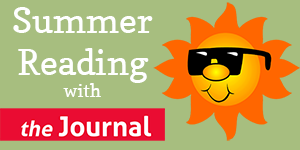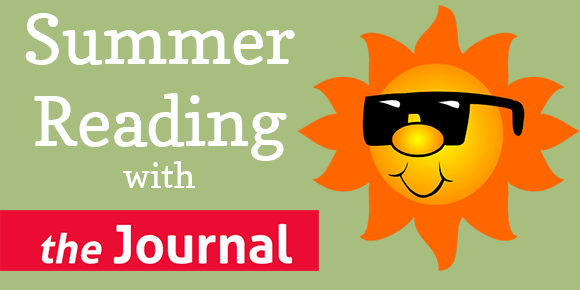
I have to admit that I’ve never really understood the concept of “beach reading.” Not that I don’t enjoy a good mystery or romance now and again, but I never saw the point of the distinctions we make between the lowbrow and the high, between what one should read while slathered in sunscreen sitting in a plastic chair and what one should read while curled up at home or in the library. Time to read is always a privilege, and whenever I find myself blessed with such time, I fill it with as many books—from any particular genre or style that happens to strike my fancy—as possible. Once upon a time, that meant I found myself reading Henry Miller’s Tropic of Cancer (exposed nipple on the cover and all) while at the beach with my family. It was a little awkward.
But, regardless, without further ado, my favorite books (and TV and music, etc.) from the summer of 2013:
The Dud Avocado, Elaine Dundy
There are a number of words that come to mind to describe this delightful 1958 novel about a young American gallivanting abroad. First, the nouns: romp, joyride, lark, caper. Now, the adjectives: effervescent, intoxicating, silly, sweet. Sally Jay Gorce, a 21-year-old Missourian, is spending two years abroad, sleeping with an aging relic of the lesser aristocracy, and yearning after an actor named Larry. It sounds simple and yet, there’s intrigue! And surprises! (Like, legitimately, not many twists really surprise me, but I think I was reading this book at a coffee shop when the third-act switcheroo came about and I was all, “Wahhhhhhaaat?” aloud. Part of this, admittedly, may have been due to certain not-entirely-correct assumptions I had about what people were allowed to write about in 1958.) Anyway, download it, check it out from the library, buy it from your local bookshop, surreptitiously take it from a friend’s apartment. (Just kidding—don’t do that last thing. Just ask. They’ll probably be happy to give it to you.)
The Patrick Melrose Cycle, Edward St. Aubyn
A definite swing in the opposite direction from The Dud Avocado (though this one also takes place in France!), this series of five novels (the first four of which, Never Mind, Bad News, Some Hope, and Mother’s Milk, have been collected in one volume, while the fifth, At Last, was only released last year) follows the life of its titular aristocrat as he evolves from an abused and neglected little boy to a troubled man approaching middle age still haunted by the memory of his toxic parents. The books are certainly not light, but St. Aubyn brings a restrained hand to his sad (and somewhat autobiographical) tales. The major revelation of the first novel is that young Patrick is sexually abused by his domineering and dissolute father, and St. Aubyn manages to make the reader feel the horror of such abuse without ever making that horror even a little titillating. And while St. Aubyn is primarily concerned with Patrick’s mental agony and self-sabotage, he always cuts the psychosexual drama with a healthy amount of social satire, skewering the leisure class that Patrick both longs to escape and desperately clings to.
The Rules of Civility, Amor Towles
Beautifully written and elegantly structured, The Rules of Civility is a rare book: an engaging story with elements of wish fulfillment (spoiler alert: our hardscrabble heroine does land a wealthy husband, though maybe not the one you expect) that nonetheless touches upon (ever so lightly, as is his way) those eternal questions of love and loss that are the primary goals of literary fiction. Towles has just released a follow-up of sorts, an e-book-only collection of stories that follow the stubborn and beautiful Eve Ross as she makes her way in 1940s Los Angeles.
Pulphead, John Jeremiah Sullivan
This is basically as good as everyone said it was, and I am honestly just a bit embarrassed that it took me this long to read it. Sullivan writes in a way that looks easy but is unimaginably difficult, bringing warmth and humor and heart to topics such as the biggest Christian Rock festival in the nation, the legacies of disgraced musicians like Axl Rose and Michael Jackson, and the surreal experience of letting your house be used as a set for the teen soap One Tree Hill. Oh, not to mention the provocative (if heavily fictional) essay that suggests animals could be turning on humans in response to climate change, or the exploration of America’s considerable stash of hidden caves, or what it’s like to watch your brother reconstruct reality after several hundred (or is it thousand?) volts of electricity fry his brain. He blends personal anecdote and historical truths with astonishing ease, and with such subtlety that I never felt he was inserting himself into a story unnecessarily. Worthy of the hype, worthy of your time.
I didn’t spend all my summer reading, however. And, if I’m being honest, the art/culture that had the greatest impact on my psyche, and kept me better company during those unusually soggy summer months, was Bob’s Burgers.
The animated series, which follows hamburger restauranteur Bob Belcher (voiced by Archer‘s H. Jon Benjamin), his wife Linda (voiced by John Roberts), and their three kids as they navigate life along something vaguely resembling the Jersey shore, is funny, warm, and uses original music better than just about any show on TV. (The AV Club even wrote about it.)
To wit: my favorite episode, the episode I returned to again and again, was “Topsy” from the show’s third and most recent season. In it, the youngest Belcher, Louise (voiced by Kristen Schaal) plots revenge on her new science teacher, a Thomas Edison impersonator who refuses to let her recycle last year’s science fair project (a classic papier-mâché volcano) and orders her instead to do one on his favorite inventor. Louise, incensed (as well as egged on by a trouble-making librarian), decides to stage a reenactment of Edison’s shameful electrocution of a circus elephant named Topsy. She enlists her older sister Tina (voiced by Dan Mintz) to play Topsy, and brother Gene (voiced by Eugene Mirman) to play Edison. Gene, however, has other plans, as he instead decides to compose a love song—”dramatic yet danceable!”—between the legendary inventor and the doomed elephant that he calls “Electric Love.” Oh, and have I mentioned that Gene and Tina can’t sing, so they have to enlist the honeyed-voiced help of their landlord Mr. Fischoeder (voiced by Kevin Kline) and their emotionally unstable Aunt Gayle (voiced by Megan Mullally)?
Hijinks, oh how they do ensue. “Electric Love” is a sweeping, melodic number worthy of Tin Pan Alley, whose comic lyrics (“I never noticed the curve of her trunk/And I never noticed his electric junk”) do nothing to detract from its majesty. Basically, when the curtain pulls back to reveal members of the marching band and the school choir, who then all join together in the final chorus? My heart, dear reader, it sings.
And my heart wasn’t the only one. Stephin Merritt, of the Magnetic Fields, was so taken with the song that he recorded a cover (along with Kenny Mellman) on a segment called “Bob’s Buskers.” I still prefer the original, myself, but I applaud Merritt’s always excellent taste.
Speaking of Merritt, one of his innumerable side projects, Future Bible Heroes, released a new album this summer, Partygoing, that’s full of all the synths that have been missing from the last few Magnetic Fields records. And its title (ish) song, “Living, Loving, and Partygoing” is (I assume) a reference to Henry Green’s informal trilogy of novels (called, respectively, Living, Loving, and Partygoing) that I swear I’ll read someday. But the title track isn’t my favorite: that honor goes to a sprightly little number called “Keep Your Children In A Coma.”
Now the semester is under way, my reading and watching and listening have all been seriously curtailed, but I’m hoping to finish Dickens’ A Tale of Two Cities, and to get started on OSU MFA alum Doug Watson’s The Era of Not Quite (reviewed by The Journal’s own Elizabeth Zaleski in the latest issue) before it gets too chilly outside.



